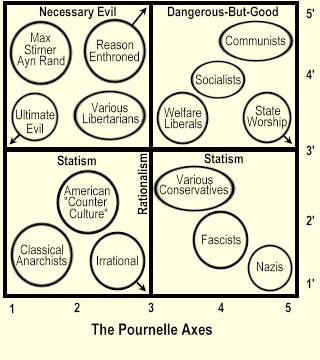
In my previous post on Crazy Eddie's Motie News, I made this programming note.
Another departure is that I won't be posting the sustainability linkspams one right after the other. I plan on interrupting them tomorrow with another post about bloggers swimming against the stream. This one will be about what Kunstler wrote regarding marriage equality in New York and will be a demonstration that I don't admire all bloggers who go against the flow.Kunstler had the following to say about marriage equality.
Which brings me to the troublesome subject of gay marriage, which is lately up for debate in the legislature of New York State where I live, making it the public's business. I have an unpopular view of it for men of my demographic (Democrat, Boomer). I'm not in favor of it. I don't think it is a good idea. I don't have empirical proof, but I suspect that unsettling such an age-old and fundamental social arrangement will produce strange unanticipated consequences that we are not prepared for. I don't believe gay marriage is a genuine social justice issue. I think it is a bid for a kind of broad social approbation which does not require ritual enactment in law, and would be socially mischievous to pursue. Civil unions would cover the necessary legal issues. Otherwise, it is a case of unwarranted relativism, a Boomer weakness. Not all conditions or states of being in this world are the same. Some things are on the margins because they are marginal.As you can guess, this did not go over well. I was one of the first commenters to jump on him.
What fascinates me in the debate is the narcissism of Boomers, males especially, who advocate so earnestly in favor of gay marriage. Is it really about the law and social relations, or is it about making yourself feel good? Is it just more posturing for moral brownie points, for approval? Is your job and social position or maybe even sense of yourself at stake if you have a differing view?
That makes for three issues that put you out of step with many others who call themselves liberal and more in step with conservatives. First, you believe in restricting legal immigration. Second, while you aren't an out and out goldbug, you think that a "hard currency" is inevitable. Now, you're against marriage equality. No wonder you have a lot of conservative readers and commenters!Keep that last thought of mine in mind. I'll get back to it later.
As for marriage equality, you're portraying it as an issue of Boomers. I have news for you. It's much more an issue of Millennials, today's teens and twenty-somethings, who are more in favor of it. Their opinion will win out over ours (I am also a Boomer) just by outliving us.
...
I don't blog about marriage equality at Crazy Eddie's Motie News, but I do blog about the economic activity the people who would benefit from such a policy bring to an area there. I see it as a good thing.
I continued to snipe at him in my response to his next column.
I see you ignored marriage equality being signed into law in New York this week. That was probably smart of you.
Kunstler may identify himself as a liberal, but note the positions of his that I pointed out as being conservative, as well as his particular argument against marriage equality. His suspicions about unintended effects fit perfectly with how Jerry Pournelle would describe a conservative position. In addition to being a science fiction author, Pournelle has a Ph.D. in political science and wrote a dissertation entitled "The American political continuum; an examination of the validity of the left-right model as an instrument for studying contemporary American political "isms.""
I presented the following analysis of liberalism and conservativism using Pounelle's construct on Daily Kos.* I think it works well for understanding Kunstler's positions.
In his dissertation, Pournelle came up with the following chart, which is now eponymously termed the Pournelle Chart.Kunstler has a strong streak of what Pournelle termed "irrationality" and it's what is propelling many of his views, especially those I pointed out as being conservative. His argument against marriage equality is explicitly an "irrational" one in the sense I described above. He fears that upsetting the established social contract will cause more problems than it solves, which overwhelms his desire for social justice.
According to Pournelle, the key difference between liberals and conservatives is not the role of government; both groups deep down believe in the power of government. Instead, what separates them is the belief that social problems can be solved by use of reason, which Pournelle calls "rationality." Liberals believe that rationality can be used to perfect society, while conservatives are skeptical of its power. Pournelle, himself a conservative, thus labels conservatives as "irrational" or "anti-rational." Keep this point in mind; it makes for a useful frame to understand the opposition.
Just so that I don’t exclude any Libertarians reading this diary, I’ll add that Pournelle shows that they have a different basis for their political beliefs. They are strongly rational, but have a low belief in state power. So, what would ever unite them with traditional conservatives, who are more irrational and believe in state power? Put the two of them together, and one gets a group of people who display a negative correlation between state power and belief in the usefulness of rationality. Liberals and others on the Left, including the anarchists, on the other hand, show a positive correlation between use of state power and effectiveness of rationality.
According to the Wikipedia article, what Pournelle's chart means is that "those at the top of this axis would tend to discard a traditional custom if they do not understand what purpose it serves (considering it antiquated and probably useless), while those at the bottom would tend to keep the custom (considering it time-tested and probably useful)."
Kunstler's skepticism of progress also underlies his goldbuggery and anti-immigrant positions. In fact, what his skepticism of rationality and progress animates even his liberal positions on the environment. He's much more of an anarchist than he is a liberal in that regard. Hmm, that's a very useful lens through which to view his ideas. Thank you, Jerry Pournelle!
Finally, remember what I wrote at the end of my first response to Kunstler?
I don't blog about marriage equality at Crazy Eddie's Motie News, but I do blog about the economic activity the people who would benefit from such a policy bring to an area there. I see it as a good thing.I should probably start doing that. After all, if I devoted a post to Slutwalk in Grand Rapids and justified with "Remember, the social component of sustainability is about promoting a just society. So is the movement described above," then I could do the same with LGBTQ rights. Model D even provided me with the appropriate source material last week: "Inclusivity and visibility": Gay Detroit going forward discussed at Model D Speaker Series and You're welcome: Four new Detroiters talk about moving to gay-friendly Midtown. That's for Wednesday at the earliest. I already have my plate full with completing the sustainability linkspams and at least two more posts about Kunstler swimming against the tide, including even more gender fail.
*This post is about the book Food Inc. and was the first of a projected series. I plan on reposting it on Crazy Eddie's Motie News as a "Blast fron the Past" (I already reposted it to my LiveJournal) and then resuming blogging about the book. Nearly all the book would fit right in with the themes explored here on Crazy Eddie's Motie News. Yes, my plate is filling up quickly. At least I teach from Food Inc., so blogging about it would explicitly be professional development.

No comments:
Post a Comment